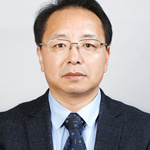Areas of Focus
- Learning Psychology
- Teaching Psychology
- Child Creativity Development and Cultivation
Work Experience
- 1991.7-1991.11 - Shandong Province Junan County Zhubian Town Middle School - Teacher
- 1991.11-1995.9 - Shandong Province Junan County Tuanlin Town Government - Government Official
- 2001.7-2005.4 - East China Normal University, Department of Psychology - Lecturer, Associate Professor
- 2005.4-2008.1 - East China Normal University, Social Science Department - Deputy Director
- 2009.1-2011.7 - East China Normal University, School of Psychology and Cognitive Science - Associate Professor
- 2011.7-Present - East China Normal University, School of Psychology and Cognitive Science - Professor
Academic Background & Achievements
- 1989.8-1991.7 Bachelor's Degree: Shandong Normal University
- 1995.9-1998.7 Master's Degree: Shandong Normal University
- 1998.9-2001.7 Doctoral Degree: East China Normal University
- 2008.1-2009.1 Visiting Scholar: Indiana University
- 2011.10-2015.10 Postdoctoral Research: Beijing Normal University
Publications
- I can, but I won't: Authentic people generate more malevolently creative ideas, but are less likely to implement them in daily life, Xu, X., Zhao, J., Xia, M., Pang, W., 2021
- Parental warmth, rejection, and creativity: The mediating roles of openness and dark personality traits, Guo, J., Zhang, J., & Pang, W., 2021
- Teachers’ perceptions of students’ creativity in China’s classrooms: The role of students’ academic achievement and misbehaviours, Guo, J., Tong, Y., & Pang, W., 2020
- Three-generational families: Are they beneficial to Chinese children’s creativity?, Pang, W., Lu, Y., Long, H., Wang, Q., & Lin, L., 2020
- Hope and creative self-efficacy as sequential mediators in the relationship between family socioeconomic status and creativity, Yang, Y., Xu, X., Liu, W., & Pang, W., 2020
- Reading thousands of books and traveling thousands of miles: Diversity of life experience mediates the relationship between family SES and creativity, Xu, X. & Pang, W., 2020
- Are emotionally intelligent people more creative? A meta-analysis of the emotional intelligence–creativity link, Xu, X., Liu, W., & Pang, W., 2019
- The underlying cognitive mechanisms of the rater effect in creativity assessment: The mediating role of perceived semantic distance, Guo, J., Ge, Y., & Pang, W., 2019
- A systematic investigation of conceptual color associations, Tham, D. S. Y., Sowden, P. T., Grandison, A., Franklin, A., Lee, A. K. W., Ng, M., Park, J., Pang, W., & Zhao, J., 2019
- High schizotypal individuals are more creative? The mediation roles of overinclusive thinking and cognitive inhibition, Wang, L., Long, H., Plucker, J. A., Wang, Q., Xu, X., & Pang, W., 2018
- Awareness and awakening: A narrative-oriented inquiry of undergraduate students' development of mindful agency in China, Wang, Q., Law, H. C., Li,Y., Xu, Z., & Pang, W., 2017
- Putting raters in ratees’ shoes: Perspective taking and assessment of creative products, Han, J., Long, H. & Pang, W., 2017
- Adolescents’ perceived parental psychological control and test anxiety: Mediating role of academic self-efficacy, Xu, X., Lou, L., Wang, L., & Pang, W., 2017
- Active procrastination and creative ideation: The mediating role of creative self-efficacy, Liu, W., Pan, Y., Luo, X., Wang. L, & Pang, W., 2017
- Confucian conceptions of human intelligence, Pang, W., Esping, A., & Plucker, J. A., 2017
- Are individuals with schizophrenia or schizotypy more creative? Evidence from multiple tests of creative potential, Wang, L., Xu, X., Wang, Q. Healey, G., Su, L. & Pang, W., 2017
- Family socioeconomic status, parental expectations, and adolescents’ academic achievements: A case of China, Long, H., & Pang, W., 2016
- From PBL tutoring to PBL coaching in undergraduate medical education: an interpretative phenomenological analysis study, Wang, Q., Li, H. & Pang, W., 2016
- Developing an integrated framework of problem-based learning and coaching psychology in undergraduate medical education: A participatory research, Wang, Q., Li, H., Pang, W., Shuo, L. & Su, Y., 2016
- Promoting creativity in the classroom: A generative view, Pang, W., 2015
- Rater effects in creativity assessment: A mixed methods investigation, Long, H., & Pang, W., 2015
- The Actiotope Model of Giftedness: A useful model for examining gifted education in China's universities, Pang, W., 2012
- Recent Transformations in China's Economic, Social, and Educational policies for promoting innovation and creativity, Pang,W., & Plucker, J. A., 2012
- 大学生学习拖延的扎根理论研究, 庞维国, 2012
- 认知负荷理论及其教学涵义, 庞维国, 2011
- 论体验式学习, 庞维国, 2011
- 创新观念的生成过程研究述评, 庞维国, 2011
- 中小学教师与学生创新观的测评研究, 庞维国, 2011
- 《吕氏春秋》智力观探析, 庞维国, 2011
- 中学教师创新观的测查研究, 庞维国, 2010
- 论学习方式, 庞维国, 2010
- 大学生学习拖延研究综述, 庞维国, 2010
- 教学实验中的处理忠实度, 庞维国, 2010
- 维果茨基的创新观述评, 庞维国, 2010
Awards
- National Teaching Achievement Award (2005/2014): Twice received
- Shanghai Philosophy and Social Science Outstanding Achievement Award (2003)
- Shanghai Education Science Outstanding Achievement Award (2004)
- National Excellent Teacher Award for Education Masters (2009)
- Selected for Shanghai Pujiang Talent Program (2009)
- Selected for Ministry of Education New Century Excellent Talent Support Program (2012)





